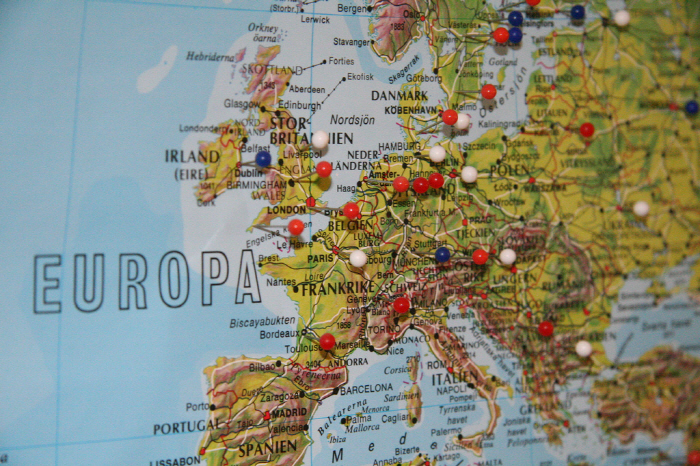2016 may not be a calm year for the Euro area with many political facets likely to affect ongoing recovery. The Brexit discussion and a possible "yes" to leaving the EU could be the harbinger of more disintegration. Uncertainty about Greek debt and Greece's euro-membership could easily return. Catalonia might seek independence from Spain. Italian Prime Minister Renzi has linked his political future to a referendum over constitutional reforms to be held next autumn. Going forward, 2017 will also be a big election year, with France, Netherlands and Germany heading into elections.
A continued cyclical recovery might limit the political radicalisation going forward. Capital spending which was the missing link could turn a rather sluggish recovery into a strong one. Heading into 2016, we see Euro area is performing reasonably well by its standards. In 2015, economic output increased by 1.5% and employment by around 1%, the unemployment rate fell from 11.2% to 10.5%, and consumer prices were stable. For both 2016 and 2017, analysts expect GDP growth of 1.7%, again mainly driven by domestic demand.
Given the large influx of refugees, the European Commission is expected to adopt a pragmatic (slightly expansionary) course of fiscal policy because of which government consumption is likely to grow by around 1½% in 2016 and 2017. The Investment Plan for Europe (also known as the Juncker Plan) may provide a positive surprise. The outlook for remains private consumption also looks promising. Forward-looking indicators are pointing to continued employment growth to the tune of 1% y/y.
"The unemployment rate is likely to fall to below 10% by the end of this year and to 9¼% by end-2017. Wage growth is likely to remain subdued with an expected increase in compensation per employee of around 1.5% this year and slightly more in 2017. Coupled with rising employment and low inflation this means that private consumption can grow by more than 1½% this year and next", says Nordea Research in a report.
Risk from slowdown in Emerging Markets still persists and could cast a shadow over the Euro area export outlook. That said, the most important trading partners for the Euro area are 1) other EU member countries, most of all the UK, and 2) the US which we both consider to be robust. Also, the more inappropriate the economic policy at country level, the more pressure will be on the ECB to stick to its ultra-loose monetary policy. This will weaken the euro further, making Euro-exports more competitive or increasing exporters' margins. At the time of writing, EUR/USD was trading at 1.0829 as at 1130 GMT, while EUR/GBP was at 0.7505.
Will messy politics dent euro area recovery?

Wednesday, January 13, 2016 11:42 AM UTC
Editor's Picks
- Market Data
Most Popular
4



 US Pushes Ukraine-Russia Peace Talks Before Summer Amid Escalating Attacks
US Pushes Ukraine-Russia Peace Talks Before Summer Amid Escalating Attacks  Trump’s Inflation Claims Clash With Voters’ Cost-of-Living Reality
Trump’s Inflation Claims Clash With Voters’ Cost-of-Living Reality  Nasdaq Proposes Fast-Track Rule to Accelerate Index Inclusion for Major New Listings
Nasdaq Proposes Fast-Track Rule to Accelerate Index Inclusion for Major New Listings  TrumpRx Website Launches to Offer Discounted Prescription Drugs for Cash-Paying Americans
TrumpRx Website Launches to Offer Discounted Prescription Drugs for Cash-Paying Americans  Missouri Judge Dismisses Lawsuit Challenging Starbucks’ Diversity and Inclusion Policies
Missouri Judge Dismisses Lawsuit Challenging Starbucks’ Diversity and Inclusion Policies  JPMorgan Lifts Gold Price Forecast to $6,300 by End-2026 on Strong Central Bank and Investor Demand
JPMorgan Lifts Gold Price Forecast to $6,300 by End-2026 on Strong Central Bank and Investor Demand  Trump Lifts 25% Tariff on Indian Goods in Strategic U.S.–India Trade and Energy Deal
Trump Lifts 25% Tariff on Indian Goods in Strategic U.S.–India Trade and Energy Deal  Trump Backs Nexstar–Tegna Merger Amid Shifting U.S. Media Landscape
Trump Backs Nexstar–Tegna Merger Amid Shifting U.S. Media Landscape  Trump Says “Very Good Talks” Underway on Russia-Ukraine War as Peace Efforts Continue
Trump Says “Very Good Talks” Underway on Russia-Ukraine War as Peace Efforts Continue 





























